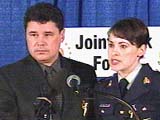Gregor, Gregor, Gregor…we really want to vote for you, but you’re making it damn hard.
Robertson’s Vancouver mayoral campaign needs a platform, it needs an issue, maybe two, that defines his candidacy and tells us who he is and what he would do and how he would be different from Peter Ladner. His missteps, although minor in essence, expose a deeply concerning lack of focus and conviction. First, he floats the idea – one largely regarded as legally impossible – to force landlords to rent out vacant strata condo units to help house the homeless, then flip flops when it becomes apparent the concept isn’t feasible.
Which brings us to the 2-fare SkyTrain boner Robertson pulled this week: Robertson received a $173 ticket for mistakenly buying an inadequate fare ticket and, when it became public, announced he was outraged at the amount he called an affront to the poor and vowed he would be taking the matter to court in December to bring attention to the injustice. Immediately, critics pounced on the story, charging Robertson was only making fighting the ticket a political issue because he was caught with an unpaid fine. For several days, his campaign veered dangerously off-track and the debate raged over whether he should have just paid the fine and moved on. It appeared Robertson’s campaign was so lacking a foundation that he tossed this line out in the water to see if maybe this could or would be the soapbox he’d been searching for.
Enter someone with some PR or political savvy to inject some sense into Robertson’s floundering run for mayor and the befuddled candidate paid the fine, decided against the court fight, apologized and cited the need to move on. Could Gregor not have worked this all out in his own head when he got the ticket – the receipt of which is not, as many seem wont to suggest, some sort of indication of low moral substance or underlying criminality on par with, say, giving an addict money to buy drugs and driving them to do it? Come on, people.
He has also come out with several half-baked ideas intended to solve homelessness and other local problems, but can’t give specifics on the cost and how the city would fund them – an ominous thread that seems to run through his presentation of new initiatives each time he raises one. Vancouver taxpayers still remembering the long garbage strike of 2007 and recent tax hikes wonder how the City will fund Robertson’s plans if he doesn’t even know – this does not exactly inspire the voters’ confidence when choosing a new mayor. We want to elect the good-looking, bike-riding, soccer-playing, business-building, socially-progressive, stick-up-for-Cambie-Street father of four, but is he up for the job?
Remember the Federal Election? Substitute “Anyone But Harper” for “Anyone But Ladner” and you sum up the feeling of many Vancouverites uneasy with the idea of electing a candidate who supported the vast majority of soon-to-be-sunset-riding Mayor Sam Sullivan’s wide-ranging and often bizarre initiatives, but only long enough to put himself in position to stab Sullivan in the back and deep six any future in politics (we hope). One can argue we don’t know or haven’t seen who Ladner is, either – is he the conservative, BC Liberal-linked, Olympic bedfellow, Machiavellian Sullivan-ite or the new and improved politico willing to revisit the Burrard Street bike lanes and achieve a homelessness solution that is respectful and supportive to all stakeholders? We just don’t know. All we do know is Ladner has proposed a tax freeze and many voters vote with their wallets, often to their detriment.
Gregor, here’s some advice: you will win if you get on Ladner about his knowledge of the City’s Property Endowment Fund and the use of that money to prop up the floundering Olympic Village project without public knowledge. Ask how this got approved and what likely scapegoat and fall girl Estelle Lo’s resignation means. Stay off TransLink or you’ll have the likes of venomous bullies such as Porvincial Transportation Minister Kevin Falcon on your back, making sure you don’t step on his carefully guarded turf. You obviously struck a nerve with him, but leave that dragon to sleep for now.
Use the gift you’ve been given today because we really want to vote for you.
